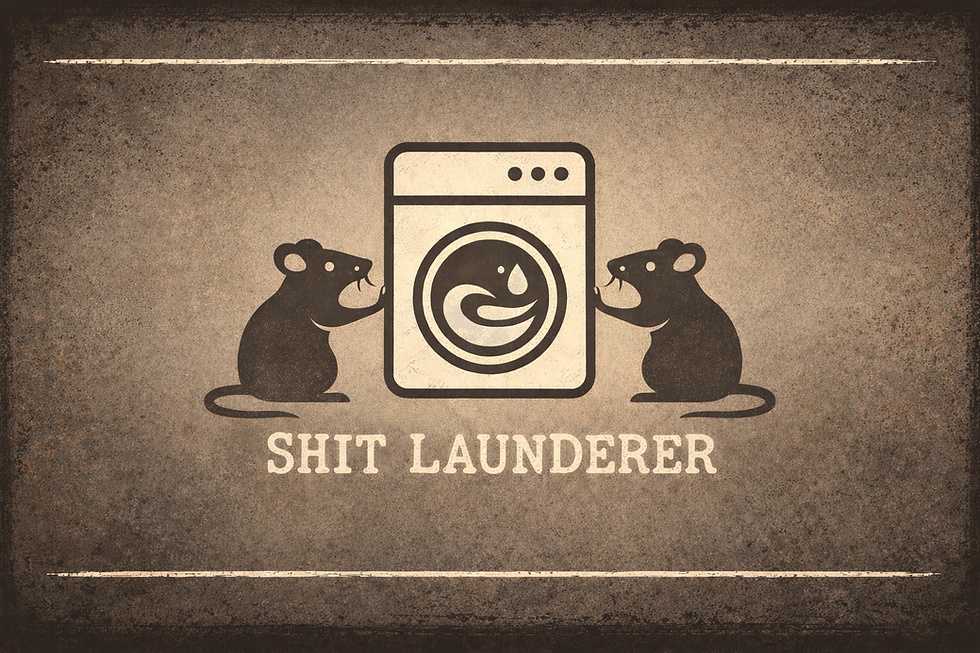Mike Johnson Thinks You Are Stupid
- john raymond
- Nov 18, 2025
- 3 min read

Mike Johnson’s latest performance in front of cameras—his strained, contradictory denunciation of the Epstein files’ release paired with his self-congratulation for having previously offered the same bill under unanimous consent—reveals a basic truth: he believes the American public is too inattentive or too confused to notice a contradiction this brazen.
The error is not accidental. It is integral to the kind of asymmetric political warfare that President Trump’s orbit has normalized: present two incompatible claims at once, rely on chaos to hide the lie, and dare the public to see the pattern. Johnson’s duplicity is therefore not a gaffe. It is a strategy premised on the assumption that you won’t catch him.
Start with the substance of Johnson’s complaint. In his presser, he warned that releasing the Epstein files would create a “guilt by association” crisis, would damage unnamed national security interests, and could precipitate unspecified harms. But moments later, he touted that he himself brought the same bill up for unanimous consent the week prior.
Unanimous consent is not an act of courage. It is a procedural trick—a way to pass a measure without requiring members to put their names on the record. Johnson wanted the political credit of appearing pro-transparency while shielding the very people who fear transparency.
The contradiction is lethal. If the bill is so dangerous that it must be slowed, questioned, or blocked, then why promote your own attempt to pass it silently? If the bill is acceptable enough to brag about when convenient, then why cast its consequences as catastrophic when real oversight approaches? This is not policy evaluation. This is narrative engineering.
Under the Raymond Method, the explanation is straightforward.
Pillar One—Regime Security—demands that anyone embedded in President Trump’s political machinery protect the network of kompromat and influence that has functioned for decades as both leverage and blackmail. The release of the Epstein files threaten that network.
Johnson’s job, therefore, is to delay, dilute, and deny. His “for it before I was against it” routine is the byzantine signaling of a man trying to satisfy two masters: Trump, who fears exposure, and a public that demands accountability.
Pillar Two—Asymmetric Warfare—explains Johnson’s reliance on contradiction. Create confusion, not clarity. Present incompatible positions to fracture attention. Claim transparency with one hand while sabotaging it with the other. The inconsistency is not a flaw; it is camouflage.
Within Pillar Three—the Traitor-General paradigm—Johnson functions as the loyal subordinate tasked with operationalizing disinformation, not with crafting consistent law.
Most revealing of all is the procedural choice. Unanimous consent is the refuge of cowards. It allows members to avoid a recorded vote—to avoid standing publicly with either victims or enablers.
Johnson’s boast that he used that mechanism gives away the game: he wanted an appearance of action without the cost of accountability. Now that a discharge petition has forced an actual vote—an act that cannot be buried—he denounces the same legislation he tried to pass in the dark while trying to avoid the light cast by today’s vote.
Johnson’s contradiction should be fastened to him permanently. It shows he is not evaluating policy; he is defending a compromised political ecosystem. It shows he does not want transparency; he wants plausible deniability. And it shows that his words carry no independent meaning. They shift according to what protects the Trump–Epstein axis and the powerful men entangled in it.
This is what analysts must underline: Johnson’s message only makes sense if he assumes the public will not notice that he argued two diametrically opposed things in the same breath. He is counting on learned helplessness, exhaustion, and confusion—the same atmospheric weapons deployed for years by President Trump’s inner circle.
But the contradiction is not subtle. It is insulting. It is the kind of contempt that presumes voters will accept anything, forget everything, and never connect the obvious dots.
And that is why the headline is true: Mike Johnson thinks you are stupid.






Comments